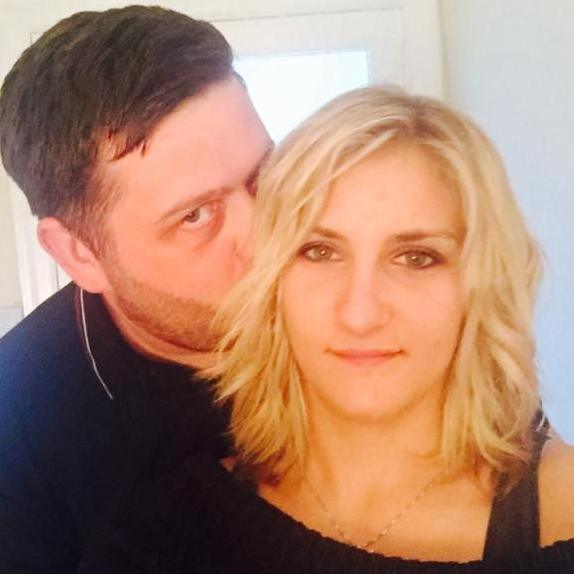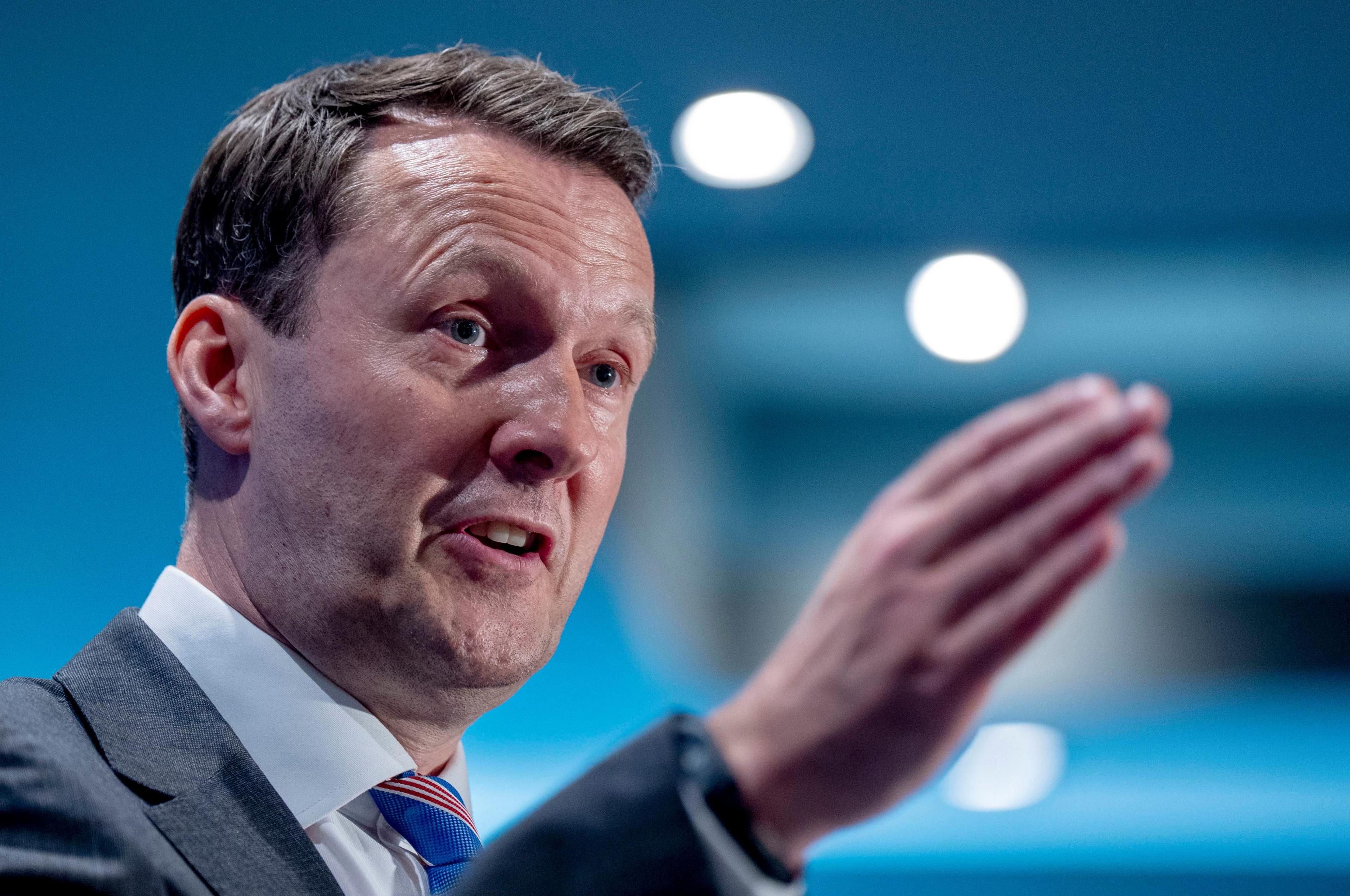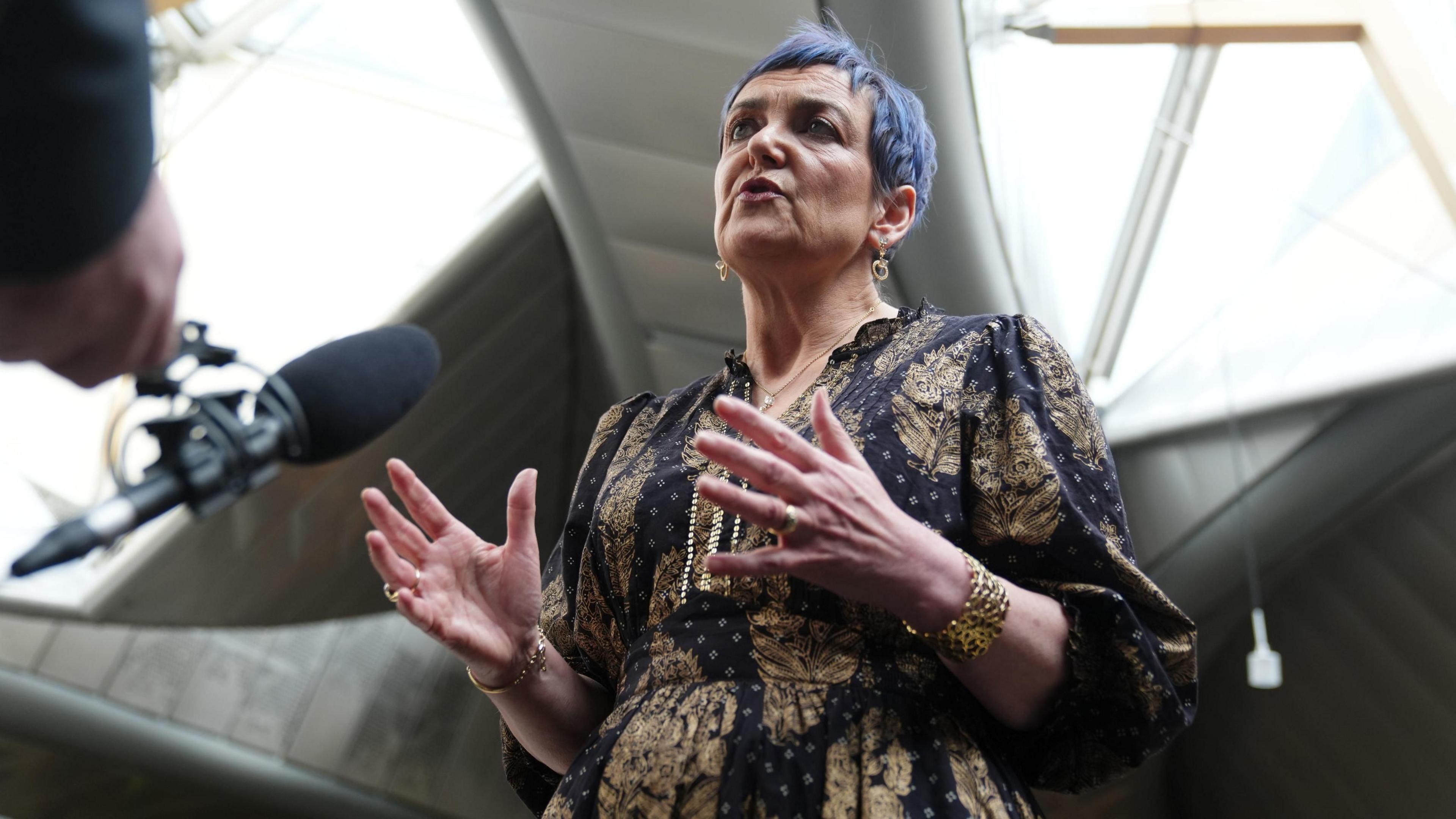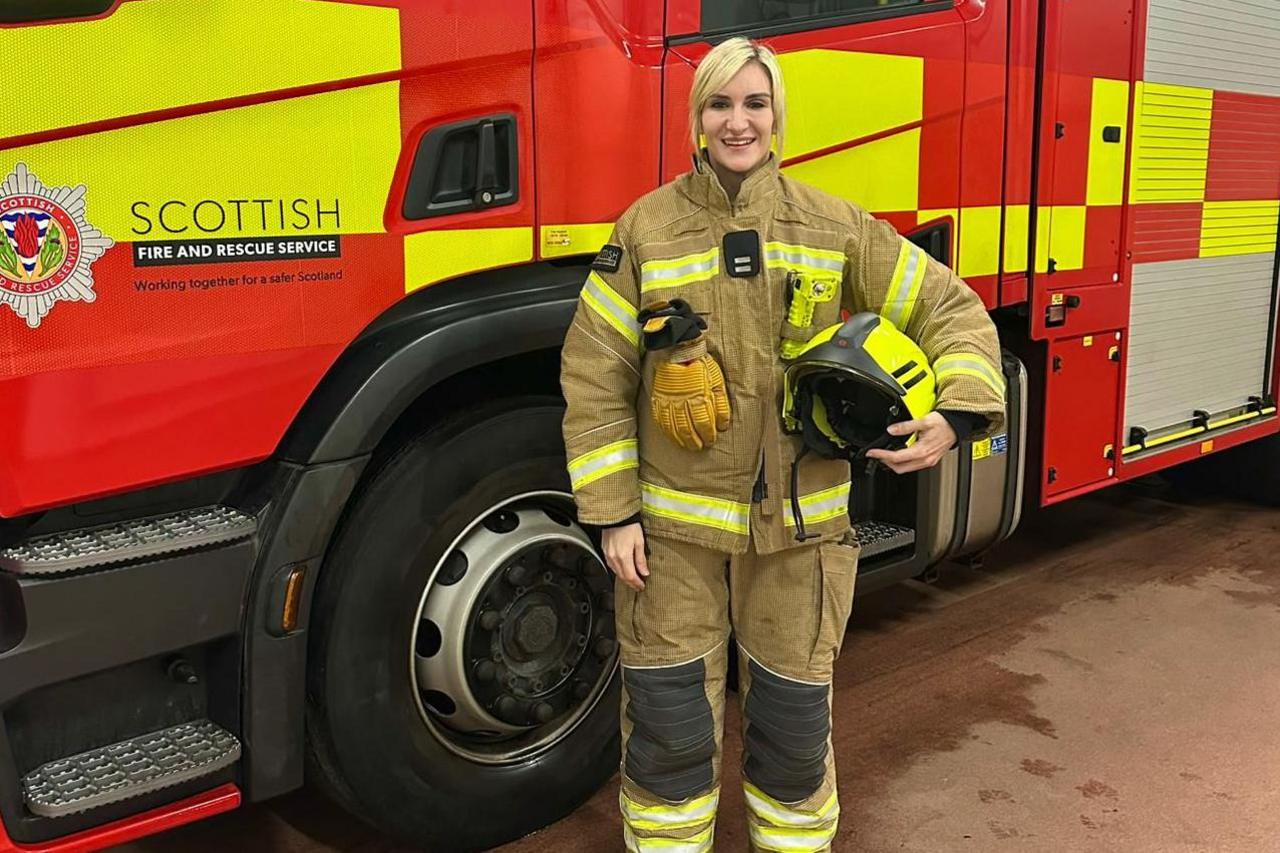'I was attacked on CCTV - but the charge was dropped in a plea deal'

Liz Shanks is calling for changes to the law
- Published
Warning: This article contains details readers may find upsetting
Liz Shanks installed cameras around her home to protect her prized collection of classic cars – but instead, they captured the escalating and violent domestic abuse carried out by her former partner.
The harrowing recordings show repeated attacks in which Chris Forrest strangles Liz, pins her to the ground, and throttles her against a wall in the driveway.
In one, he screams "you are going to die in my hands you wee cow" as she gasps for breath.
The videos proved pivotal in a 2022 court case when Forrest was jailed for 27 months for attacks on Liz spanning three years.
Faced with the CCTV evidence, Forrest pleaded guilty to four charges.
But as part of a plea negotiation, commonly known as a plea deal, prosecutors agreed to drop the other seven charges against him.
Liz, a 36-year-old firefighter from Blantyre in South Lanarkshire, says she was "devastated" when she discovered that those charges had been dropped.
My abusive ex-boyfriend was given a verbal warning
- Published11 March 2024
Faster justice scheme rolled out across Scotland
- Published20 September 2024
Poet reveals four-year domestic abuse ordeal
- Published1 March 2024
She is part of a group of abuse survivors who are calling for the law to be changed to ensure that victims are notified about plea negotiations agreed in their cases.
The leader of the Scottish Conservatives has backed the move, but Justice Secretary Angela Constance has indicated that she is not in favour.
Liz says that the first she knew about the plea deal was when she got a phone call to say that the court case was over.
"I said: 'Where was my say in this plea deal? Why wasn't I told or given a say?'
"I was devastated. I was left frustrated. Disbelief. And I struggled to get the information as to what particular attacks he'd pled guilty to.
"Much to my disappointment there was one in particular that had supporting CCTV which he got off with."
CCTV footage shows Forrest kicking the car window during the incident
In that video, Forrest can be seen standing in the driveway waiting for Liz while cracking his knuckles.
When the car pulls up he launches into an attack, screaming at her and pulling the door open, before lunging into the driver's side.
Liz says Forrest strangled her inside the car for almost 10 seconds. The footage then shows him slamming the door on her foot and kicking the car window before dragging her terrified pet dog away by its lead.
Forrest was initially charged with assault to the danger of life for the attack. A not guilty plea was accepted.
"I just felt like part of my world had fallen apart," said Liz.
"I'd been fighting so long and so hard to see the end result for this."
She said that if he had been convicted on that charge, it would have given her "validation" - something that was really important for most victims.
Liz said that notifying victims of a plea deal would prevent them feeling like "a spectator" in the whole process.

Forrest was jailed for attacking Liz over a three-year period
She is part of a group of seven campaigners, featured in a BBC Disclosure documentary on domestic abuse last year, who are calling for more rights for victims going through the justice process.
Most of them say they were not informed of the outcomes of plea deals in their cases.
In these negotiations, a procurator fiscal can accept some not guilty pleas if the accused admits other charges.
Scottish Conservative leader Russell Findlay is attempting to get changes to the way plea deals are handled included in the new Victims, Witnesses and Justice Reform (Scotland) Bill.
He said: "We're not against the use of plea deals but we think it's a basic requirement that there should be transparency around their use, and that victims should be given a full explanation as to when they're used, why they're used and the terms that are reached.
"Quite often what happens is charges are either watered down or indeed dropped altogether even where there's an abundance of evidence to support specific charges, so inevitably when people don't even get told about this, or perhaps find out by accident, it causes them additional distress."

Mr Findlay proposed two amendments to the bill, which would enshrine in law the requirement for a victim to be notified when a plea deal is reached in their case.
He failed to win support last time the bill was discussed at Holyrood, but intends to press the case again when it reaches its final stage of the parliamentary process.
Liz and other campaigners are writing to the justice secretary asking her to support those amendments.
Ms Constance outlined her opposition to this move at a recent justice committee hearing, saying it could "add complexity to the system that victims need to navigate".
And she added: "Removing individual choice could be traumatic when the victim has made an informed decision not to engage."

Angela Constance has said the proposal could add complexity to the system
A Scottish government spokesperson said the justice secretary was willing to continue to consider what more could be done to ensure victims receive the information they are seeking.
The Crown Office and Procurator Fiscal Service says plea deals avoid the need for a trial and the stress of witnesses having to give evidence.
A spokesperson said it was "committed to listening to victims whilst working with partners across the criminal justice system in the continual improvement of the communication process".
Dr Marsha Scott, the chief executive of Scottish Women's Aid, said it should be possible to engage with survivors in "a respectful and informed way".
"This not about forcing engagement with survivors, this is about opening the process to them so that it's transparent, so they understand what's happening and so that they can control as much as possible their engagement with the system.
"The plea negotiations or plea bargains are a significant area that needs improvement."

Liz has been working with the Scottish Fire and Rescue Service to develop policy and training on domestic abuse
Simon Brown is president of the Scottish Solicitors Bar Association, which represents criminal defence solicitors.
He said complainers – the alleged victims in a case – should be notified of plea negotiations, but warned against further concessions.
"I think this issue becomes problematic when you have to ask for their consent," he said.
"Complainers don't have the necessary legal knowledge to know what is and isn't admissible in evidence.
"Obviously by the nature of being a complainer, they're going to be biased against anything resolving short of guilty."
Liz Shanks says she will continue campaigning for changes that will benefit abuse survivors, and has been working with the Scottish Fire and Rescue Service to develop policy and training around the issue.
She is expecting her first baby with a new partner, and says this shows that there can be light at the end of the tunnel.
"I know from what I went through that you're so low, you don't believe that something as good as that could happen to you," she adds.
"But life is so much better. And if I can take something negative and make it into something positive and help other people, it makes me feel better about what's happened to me."
If you've been affected by the issues in this story you can find information and support here on BBC Action Line.